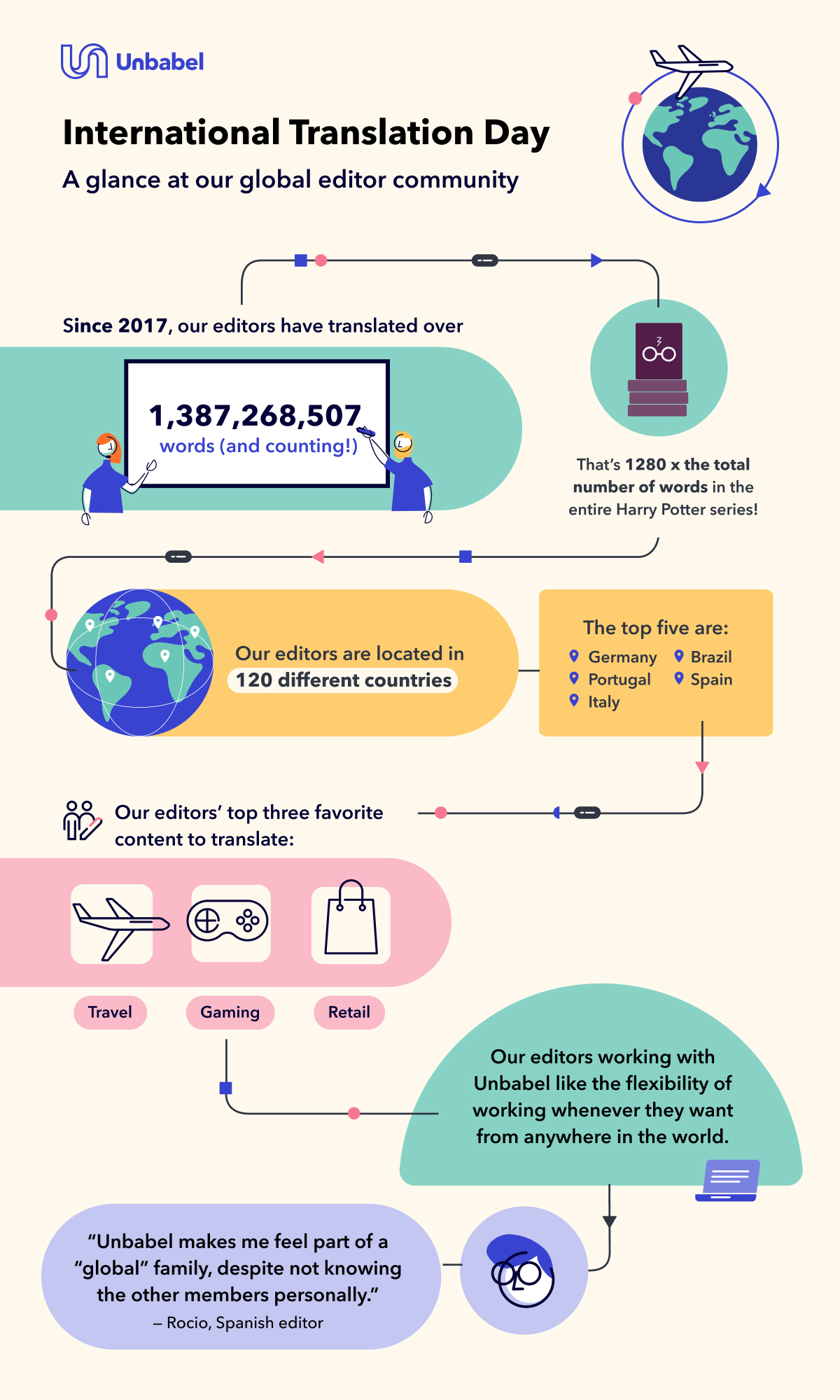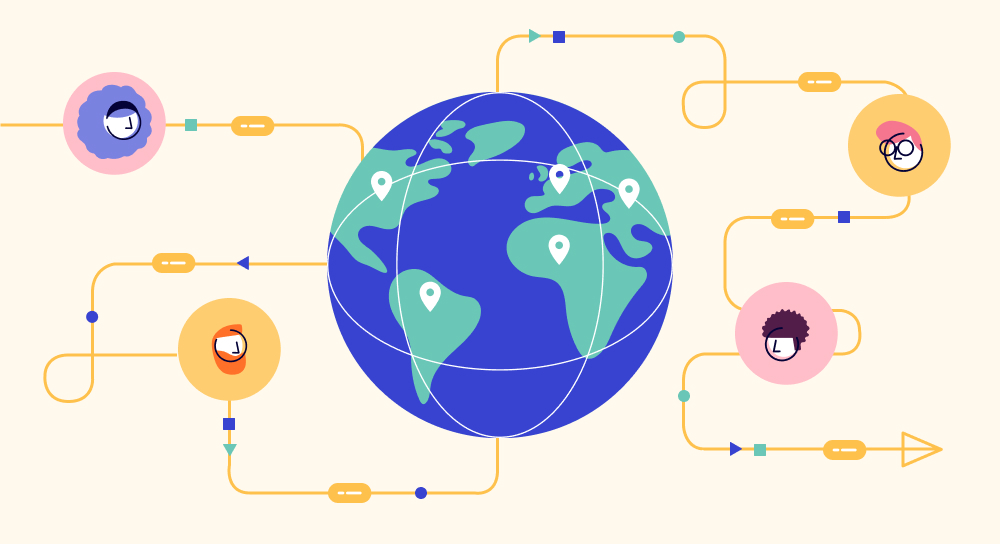In 2017, The United Nations General Assembly (UNGA) passed a resolution declaring September 30 International Translation Day. The UNGA did this as a way to honor the work of language translation professionals and the role they play in facilitating global dialogue, bringing nations together through common understanding, and promoting unity.
This International Translation Day, we’d like to shine a light on our diverse community of editors, one of the most essential elements of Unbabel that has allowed us to drive our vision of a world connected through language. As the UNGA resolution put it, “(L)anguage, as a fusion of the common and the unique, reflects the idea of the strength of a united world, which stems from its diversity.”
Let’s take a close look at the community of professional translators who help us knock down language barriers.

What do our editors love about working with Unbabel?
When we asked our editors their favorite part about working with Unbabel, the number one response was appreciation for the flexibility of being able to work whenever they want from anywhere in the world. In the case of traveling editors like Marvin, location-independent work allows digital nomads to travel across time zones and country lines without being bound to the obligations of a traditional 9-5 job.
Some of our editors may not have had the opportunity to enjoy the perks of remote work prior to Unbabel. For Jarek and Agata, senior editors in our English-to-Polish community, part-time translation tasks quickly became full-time jobs after they realized the benefits of working remotely, like being able to spend more time with their children. (When it comes time to focus, they lock in by listening to a special playlist of movie soundtracks and “very loud bangers.”)
Unbabel editors are located in almost every corner of the globe — 120 countries, to be exact. The top five locations that our editors call home are:
Germany (9%)
Portugal (7%)
Italy (6%)
Brazil (5.6%)
Spain (5%)
However, in talking with our multilingual editor community on a regular basis, we’ve found that many recognize they are “global citizens” and don’t necessarily align their identities with a particular nation-state.
A love of learning, a love of language
Some of our editors are using language translation as a way to support themselves during their studies. For example, Erica started editing for Unbabel as a way to practice translation skills for her language-related degree, saying that “economically it made a huge difference because it allowed (her) to finish paying for school.”
While most of our editors were already working with language in some regard before Unbabel, that’s not always the case. Elena’s relationship with us began after she graduated from veterinary school and had difficulty finding vet work in the small town where her family was settled. Being able to turn to an auxiliary skill set of language translation has helped many of our editors find stability during uncertain times. “Al mal tiempo, buena cara,” Elena says in Spanish. “In bad weather, you have to look on the bright side.”
Ultimately, the reason why someone becomes a translator or their level of formal education doesn’t matter, so long as they find purpose and happiness in their work. According to Chiara, an Italian/French/English editor in our community, “To know that I can facilitate the conversation at Unbabel between people who don’t speak each other’s languages, it’s a joy. It makes me feel like an interpreter at the U.N.”
Hot topics in language translation
Speaking of passion, we were also very curious to ask our editors, “What is your favorite type of content to translate at Unbabel?”
A whopping 44% of our editors say that travel-related content is their favorite topic to translate, which aligns with the sense of wanderlust we’ve uncovered when talking with the community. Luckily, that category is one that has been gaining quite a bit of popularity at Unbabel as travel restrictions start to lessen following last year’s strict lockdown period.
Coming at number two, 25% of editors report that the gaming industry offers their translation content of choice. This is another area that has been impacted by the COVID-19 pandemic, and growth in this space — especially mobile gaming — shows no signs of slowing down anytime soon.
“Unbabel is powered by the passion and hard work of thousands of diverse, skilled editors around the globe. On this International Translation Day, I want to celebrate our editor community. Their dedication and commitment to delivering the best quality translation are essential to building the world’s translation layer and why we are able to make universal understanding possible for everyone in the world, every day.”
— Vasco Pedro, CEO, Unbabel
Stay connected with the Unbabel community
As you can see, the Unbabel editors are more than just “gig” workers — they are a smart, compassionate, and vibrant community of language translation professionals who have helped us take the idea of seamless global communications from a dream to a reality. On International Translation Day and all year round, we highlight our interesting and diverse editors on the official Unbabel Community blog. Hit “follow” on Medium to stay up to date on the latest stories and adventures from our community.












